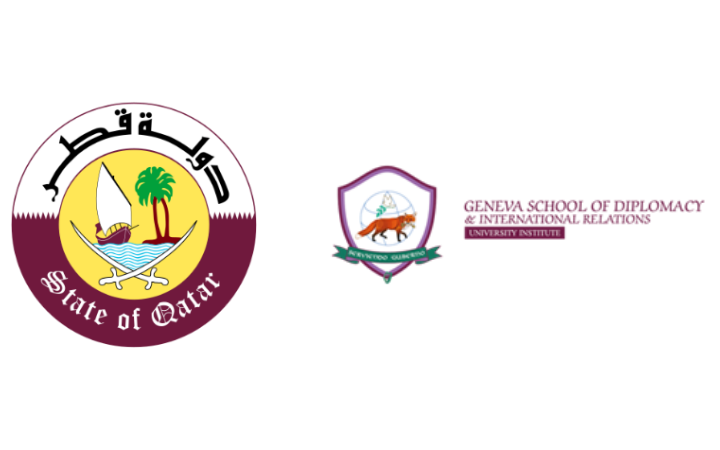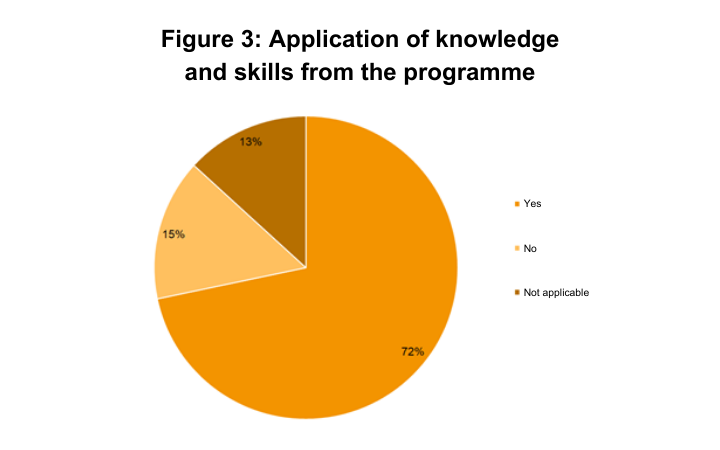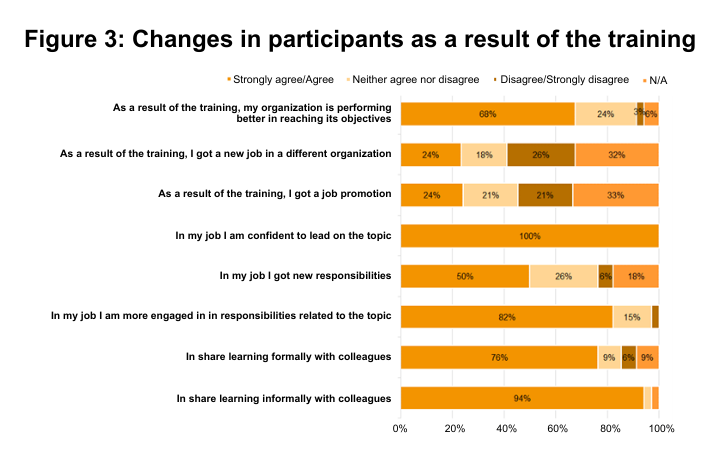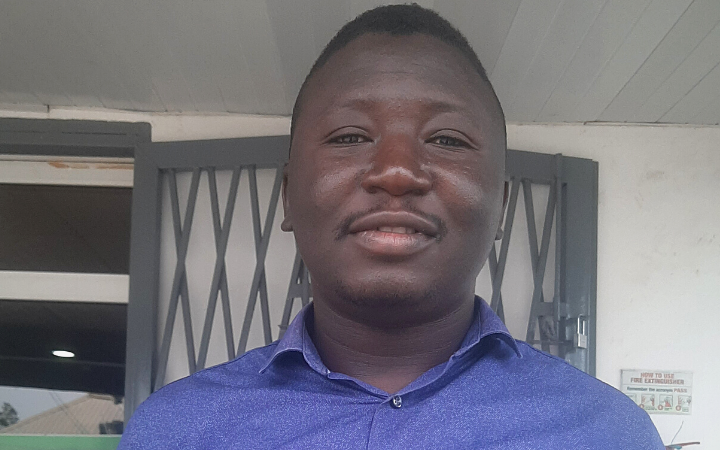Background
Responding to an unexpected crisis has always been a challenge for policymakers. Health-related crises, such as the current COVID-19 pandemic, are no exception. With the aim of increasing public officials' response capacity to develop and implement effective policies and actions in health emergency contexts, UNITAR and the Geneva School of Diplomacy and International Relations have organized the e-learning programme, "Responding to crisis: strengthening finance and trade resilience to global pandemics and health emergencies in Sub-Saharan Africa (SSA)". The programme was financed by the State of Qatar through UNITAR's Strategic Framework Fund (SFF).
The learning objectives include:
- Developing the practical skills necessary for mastering the challenges of pandemics, as a risk factor, on finance and trade resilience.
- Assessing finance and trade policy decisions and responses that have optimal impact in responding to the COVID-19 pandemic.
- Advancing understanding and communication to better contribute to preventing and overcoming friction, barriers, misunderstandings and prejudices in responding to pandemics and health emergencies.
- Engaging in a culturally diverse learning environment and building a network of professional relationships with fellow participants and experts.
Ten lectures were delivered in November 2020. They focused on the impact of COVID-19 on trade, economic growth and the 2030 Agenda in SSA; the global community's support of the response to the pandemic, facilitating trade and financial flow and lessons learned from the region. The programme methodology relied on a case-based learning approach to achieve the learning objectives, i.e., group case study assignments of Least Developed Countries (LDCs) in SSA with peer-review.
One hundred and eighteen (118) professionals and students working in trade and finance from SSA participated in the programme. Ninety participants obtained certificates of completion. Participants came from 25 SSA countries, mainly Kenya, Nigeria and Zambia, as illustrated in Figure 1 below. Most of the participants were male (76), followed by female participants (38) and those identifying with other genders (3).
This Impact Story collects feedback from participants six months after completing programme. It aims to highlight any changes that have occurred in their professional, academic or personal lives as a result of attending the course. The analysis is based on an online survey completed by 53 participants (45 per cent response rate), as part of independent evaluation conducted on behalf of UNITAR's Strategic Framework Fund, and one in-depth interview. Other participants who indicated a willingness to discuss their survey responses in more detail were contacted to participate in the interviews for this Impact Story. Unfortunately, we did not receive any further confirmation from them. We overcame this challenge by synthetising information from four video testimonials and the summary notes of twelve semi-structured interviews collected during the course the UNITAR SFF independent evaluation.
Application of knowledge and skills from the e-learning programme
Of the 118 participants, most worked in governmental organizations, the private sector and academia. At the beginning of the programme, participants expressed a willingness to use the knowledge and skills from the course in their professional life: Participants intended to apply their new knowledge and skills for: academic research and teaching; advising policymakers and finance or trade institutions; legal advisory and capacity building activities; design of COVID-19 mitigation and recovery plans; academic assignments; improvement of project planning and design; and resource mobilization.
Many of the above examples were cited by survey respondents for this Impact Story: 38 out of 53 survey respondents (72 per cent) indicated having applied the knowledge and skills from the programme, as shown in Figure 2. Specific on-the-job application described by survey respondents included the potential impact of COVID-19 in project proposals, market performance and organization strategy, analysis of credit extensions, drafting policy briefs and research papers, assessment of taxpayers, use of information for panel discussions and designing strategies to cope with financial challenges in the workplace. One of the respondents highlighted some unexpected changes, such as increased skills in managing diversity in the workplace. He confirmed an increased awareness of diversity after interacting with colleagues from other countries during the course assignments. Testimonies from participants also highlight the application of knowledge from the course to academic tasks (e.g., master's dissertation).
The training programme prompted additional changes to participants' working lives, such as participants sharing knowledge from the course with colleagues informally (94 per cent) or formally (76 per cent), greater engagement in tasks related to the training topics (82 per cent), new responsibilities at work related to the training topics (50 per cent), job promotion or new job due to the programme (24 per cent each) and overall increased performance in the workplace (68 per cent). Confidence in performing the tasks was the area with the greatest percentage of change reported (100 per cent). Figure 3 illustrates this distribution.
Moreover, survey respondents attributed a large part of the changes at work and application of knowledge to the training programme (73 per cent). According to interviewees who took part in the independent UNITAR SFF evaluation, the programme was very timely, given the COVID-19 context.
Factors for success of application of knowledge indicated by survey respondents included initial action plans to apply the knowledge and skills from the programme (as highlighted above), support from colleagues and peers and an overall enabling environment at work. The training materials, trainers' expertise, peer-review exercises and interaction with other participants were considered to be the key strengths of the training programme, which facilitated their understanding of the subject matter. Participants from the countries included in the case studies stated that the exercise helped them to contextualize the knowledge in the workplace. However, participants suggested extending the duration of the course and making the training materials available in good time to allow more time to prepare for the sessions.
The factors which posed a hindrance to application of knowledge included the lack of an incentive system at work to encourage application of new knowledge, the absence of a supportive environment (i.e., policies and structures), and the lack of opportunities to apply knowledge and skills.
Ali Baba Abdulkarim
Ali Baba Abdulkarim
Revenue officer at Kwara State Internal Revenue Service
Informed decision-making of tax payment in the COVID-19 context
Kwara State, Nigeria. Ali is a revenue officer at the Kwara State Internal Revenue Service. He holds a bachelor's degree in economics and is a certified accountant. Ali's work has been focused on the financial sector. Before joining the organization, he worked as a risk analyst in a microfinance institution. In the future, Ali would like to have his own business, ideally in the transport sector. In view of this, Ali considers it essential to acquire new knowledge that can help him in his current job and any professional future endeavours. The e-learning programme fulfilled his requirement for learning opportunities.
Ali describes his current role "as a mediator between the government and the population on revenue and tax-related issues". Ali recently transferred to the tax department from the informal sector department. In his previous role, Ali conducted taxpayer assessments to advise the government on the best way to collect revenue from informal sector workers.
The programme helped Ali specifically in this regard. During the course, participants received information on the impact COVID-19 had on the performance of different sectors in SSA countries. Ali was able to use the information from his own country to make informed judgements on how to negotiate and manage tax decisions for the population according to their business sector. Ali says you have to be very careful when assessing taxpayers to ensure that you do not damage business performance, especially with COVID-19 which has affected many businesses, some of which are now debt-ridden. Ali feels his analysis is more informed and fairer as a result of using the information provided in the programme. However, he is not responsible for deciding how to proceed with taxpayers, he can only advise on the way forward.
Ali acknowledges that he has not applied the knowledge and skills learned as much as he would have liked but he is doing his best. He has been hindered by a lack of confidence, but believes that experience can teach you new ways to apply knowledge. Nevertheless, Ali remains very positive and continues to seek out opportunities to "maximize" his newly acquired knowledge. He also hopes to exploit the new knowledge when he has his own business in the future.
Ali appreciates the programme's format and is looking forward to new UNITAR courses to continue his professional growth.
Conclusion
The programme was very timely and relevant to participants' professional lives, especially in light of COVID-19. The course content, training materials, trainers' expertise and methodologies were key to allowing participants to process and apply the knowledge and skills from the programme in their day-to-day work. In addition, the regional perspective of the programme (SSA) helps participants to visualize potential ways to apply knowledge in their workplace before the end of the programme. A high attribution rate (73 per cent) was observed among participants.
Although not all the participants were directly involved in policymaking, the examples show that the information provided during the programme could be applied to a number of different professional settings (for example, in the academic field and tax revenue activities).










